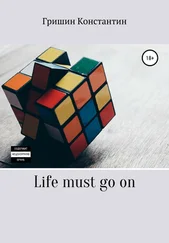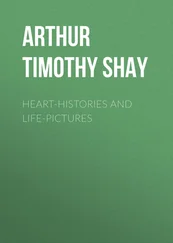Howard Norman
Next Life Might Be Kinder
As a man thinketh in his heart, so is he.
— Proverbs 23:7
AFTER MY WIFE, Elizabeth Church, was murdered by the bellman Alfonse Padgett in the Essex Hotel, she did not leave me. I have always thought a person needs to constantly refine the capacity to suspend disbelief in order to keep emotions organized and not suffer debilitating confusion, and I mean just toward the things of daily life. I suppose this admits to a desperate sort of pragmatism. Still, it works for me. What human heart isn’t in extremis? The truth is, I saw Elizabeth last night, August 27, 1973. She was lining up books on the beach behind Philip and Cynthia Slayton’s house, just across the road. I’ve seen her do the same thing almost every night since I moved, roughly thirteen months ago, from Halifax to this cottage. I’m now a resident of Port Medway, Nova Scotia.
At three-thirty A.M., sitting at my kitchen table, as usual I made notes for Dr. Nissensen. I see him at ten A.M. on Tuesdays in Halifax, which is a two-hour drive. I often stay at the Haliburton House Inn on Monday night and then travel back to Port Medway immediately following my session. Don’t get me wrong, Dr. Nissensen is helping me a lot. But we have bad moments. After the worst of them I sometimes can’t remember where I parked my pickup truck. Then there are the numbing redundancies. Take last Tuesday, when Dr. Nissensen said:
“My position remains, you aren’t actually seeing Elizabeth. She was in fact murdered in the Essex Hotel on March 26 of last year. And she is buried in Hay-on-Wye in Wales. But her death is unacceptable to you, Sam. You want so completely to see her that you hallucinate — and she sets those books out on the sand. It’s your mind’s way of trying to postpone the deeper suffering of having lost her. One thing books suggest is, you’re supposed to read into the situation. To read into things. Naturally, it’s more complicated than just that. It can be many things at once. My opinion has not changed since the first time you told me about talking with Elizabeth on the beach”—he paged back through his notebook—“on September 4, 1972, your first mention of this. My position remains that, as impressively creative as your denial is, and to whatever extent it sustains you, it’s still denial.”
“My God,” I said. “A life without denial. How could a person survive?”
Nissensen smiled and sighed deeply: Here we go again. “What’s on the piece of paper you’re holding? You’ve been holding it in clear view since you arrived.”
I had copied out from a dictionary the definition of “Bardo.” “Let me read this to you: ‘Bardo — a Tibetan concept meaning intermediate state. ’ It’s when a person’s existing between death and whatever’s next. And during this state, certain of the usual restraints might not be at work, in some cases for a long, long time.”
“And you feel this is what you’re experiencing with Elizabeth?”
“Yes. Which I hope lasts until I die.”
“So, you’ve recently found this word in a dictionary and now you’re embracing it,” Dr. Nissensen said. “Okay, let’s go with this a moment. What do you think it means that certain — what was it? — usual restraints might not be at work?”
“Well, to start with, obviously a person who’s died is usually restrained to being invisible, right? They usually don’t show up on a beach and hold conversations.”
“Yes, I’ve got quite a notebook filled with your and Elizabeth’s conversations.”
“That makes two of us, then.”
“I’ve been curious, Sam. Do you jot these down as they occur? Like a stenographer?”
“Like a stenographer, yes, sometimes. But sometimes I just listen closely and write things down the minute I get back to the cottage.”
“Week after week, you attempt to convince me you’re actually having real conversations, rather than, for instance, composing them. At your writing desk. The way you might when writing a novel, say.”
“Do you consider me a stupid man?” I asked.
“Of course not.”
“A liar?”
“Of course not.”
“No matter whether or not it’s called Bardo, the word’s not that important. The thing is, I talk with Elizabeth almost every night. And talking with Elizabeth is a reprieve from suffering. After all this time, you still don’t get it.”
“No, no,” Nissensen said, “I get it.”
“Yet you insist on calling what’s happening to me an — what was it?”
“An advent of mourning.”
“Advent of mourning. But I despise the word ‘mourning.’”
“And why is that, Sam?”
“Because it implies a certain fixed duration, a measurable time frame, and it also relates to my most hated word: closure. If you love someone and they suddenly disappear — say they die — there is no closure. It’s like, it’s like — what? — it’s like a Bach cello composition playing in your head that doesn’t let up. You can’t predict for how long. What if it’s for the rest of your life? You don’t just get closure. You don’t just come to terms and then move on. And not even a lobotomy could change my mind about this. And I’ve read C. S. Lewis, that book of his— A Grief Observed. I’ve read some theology and philosophy, advice-to-the-bereaved stuff, and I don’t give a goddamn who says what or how dramatic or limited or self-destructive I sound. Closure is cowardice. When you lose someone you love, the memory of them maintains a tenacious adhesiveness to the heart — I quote Chekhov there. See, if you don’t feel very articulate, it’s useful to find people like Chekhov to help you out.”
“I don’t think being inarticulate is your—”
“Look, if I ever said ‘Oh, I’ve found closure with Elizabeth,’ please push me in front of a taxi on Water Street — I’d be dead to feeling anyway. You have my permission ahead of time. Shoot me in the head.”
“I’m your therapist. You’d have to ask someone else.”
Silence a moment, then he said, “‘Dead to feeling.’ So the pain keeps you alive to feeling.”
There was silence for maybe three or four minutes. This seldom bothers me. I just study the room. It is a basement refurbished as an office. Against three walls are shelves of books. Also, there are books crowded and piled haphazardly on tables. Mostly books on psychology, but I’ve noticed a few novels, too. Dostoyevsky. Thomas Mann. Virginia Woolf. Conrad. Charlotte Brontë. Little that’s contemporary. There is a small Van Gogh drawing of a village; I’ve wanted to ask if it’s an original. I’ve wanted to ask if it was inherited. There are five framed charcoal drawings of various women, not nudes. I know that his wife, Theresa, drew them because there are two others in the exact same style in the waiting room, each bearing her signature. There’s his overstuffed chair he sits on, and a sofa his clients sit on. On the table between the chair and the sofa, a box of tissues, a glass, and a pitcher of water. There are five ground-level windows, allowing for plenty of light, but also three floor lamps and one table lamp. The house is in a neighborhood of some of the oldest buildings in Halifax. Dr. Nissensen’s is a late-nineteenth-century townhouse. Winter mornings I occasionally hear the clanking echoes of the radiators. A car horn. On rare occasions a voice from the street.
“Last week you mentioned that lately Elizabeth has told you things she’d”—he flipped back through his notebook—“kept secret, but not on purpose.”
“Yes, it’s been great.”
Читать дальше












